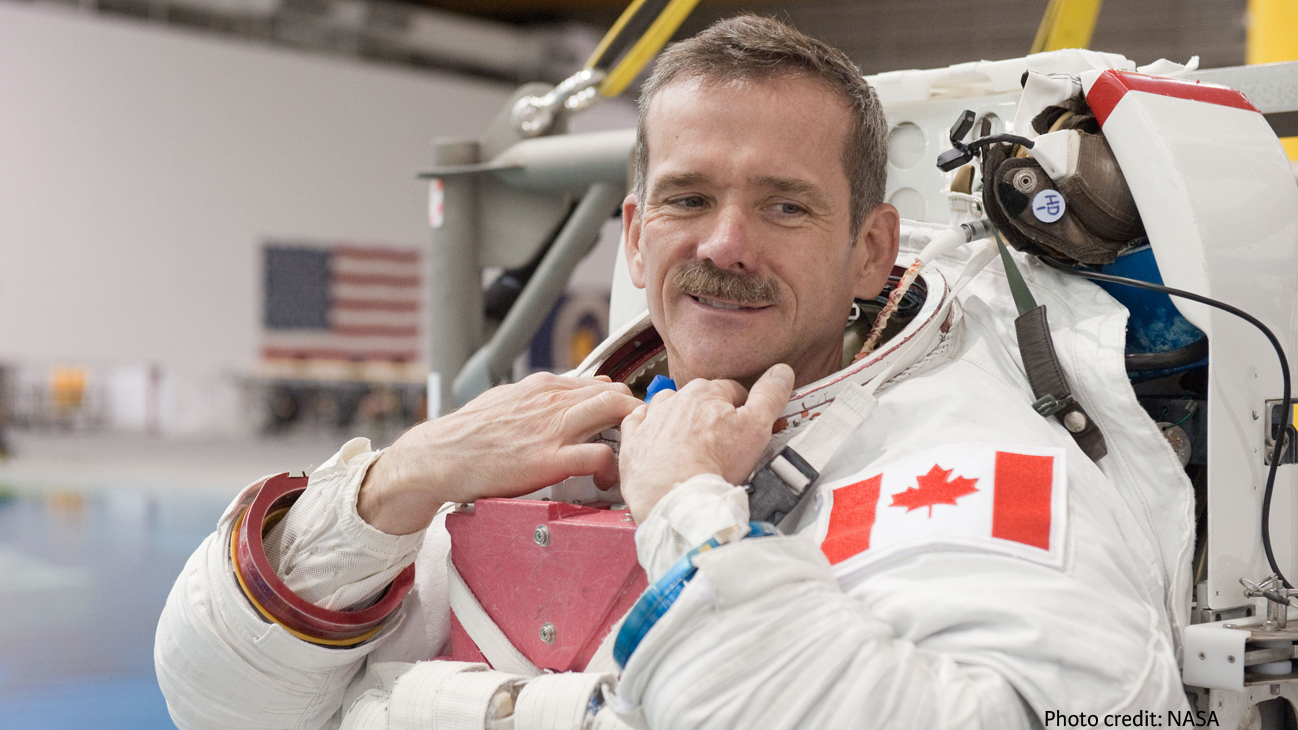“Good morning, Earth!” That is how Colonel Chris Hadfield—writing on Twitter—woke up the world every day while living for five months aboard the International Space Station. Through his 21-years as an astronaut, three spaceflights and 2600 orbits of Earth, Colonel Hadfield has become a worldwide sensation, harnessing the power of social media to make outer space accessible to millions and infusing a sense of wonder into our collective consciousness not felt since humanity first walked on the Moon. Called “the most famous astronaut since Neil Armstrong,” Colonel Hadfield continues to bring the marvels of science and space travel to everyone he encounters. This week, Colonel Hadfield announced his latest YouTube initiative, “It’s Not Rocket Science”, sure to be another viral sensation:
What’s better than a Chris Hadfield video? Not much. Although, we’re betting a series on YouTube might do the trick.
This fall, Canada’s mustachioed astronaut is launching “It’s Not Rocket Science” — a 10-episode animated science-comedy series. “It’s Not Rocket Science” is aimed at continuing the educational work Hadfield was doing while he was aboard the ISS.
However, in an interview with The Huffington Post Canada, Hadfield’s son, Evan, said the series will not be a “science explainer” like the videos created by SmarterEveryDay, Minutephysics, AsapSCIENCE and Veritasium.
Instead, the videos will talk about science topics from a “discussion standpoint” in Hadfield’s down-to-Earth (we couldn’t resist) style. The animated astronaut will educate viewers through narrative and anecdotes.
“He really enjoys giving back,” Evan said. “We just want to make education accessible.”
There were a few factors in the decision to animate the series. “Of course, one of them is because Dad is so busy,” Evan said. “And then art is a really good way to describe something. Animations allow us to show metaphor. To tell people more about a topic that just simply using words.”
One example Evan Hadfield referred to was making a germ cell — that only exists in a cow — to be cow-shaped or look like a cow.
The topics the series will address are issues that have come up in the news recently, like vaccines or climate change. They were selected because of a “wide misunderstanding that could be easily explained.”
“Unfortunately, what happens is that a misunderstanding comes out,” Evan said. “And then the discussion revolves around that.”
Evan points to vaccinations and the controversy around the ‘anti-vaxxer’ movement. “We don’t know about smallpox because it was eradicated in 1980. Between 1900-1980 it killed 500 million people. That’s the population of Europe.”
“It’s easy to put out the right message,” Evan said. “As long as the people are willing to listen.”

